Winter Prayers and Sacred Duties at the Pilgrims’ Lodges of Mt. Haguro
About us
Sanada Enmei-in is a historic pilgrim lodging located on the sacred Mt. Haguro in Tsuruoka City, Yamagata Prefecture.For centuries, this traditional lodging has welcomed pilgrims to the sacred Three Mountains of Dewa.
Although the family records were lost in a fire, its origins are said to date back to around the year 1220.
Shukubō (Pilgrims’ Lodge) and Its Living Tradition of Faith
For centuries, the sacred peaks of the Dewa Sanzan have been revered as a spiritual homeland—drawing ascetics who sought divine power amid harsh nature, and pilgrims who prayed for blessings in this life and for the repose of their ancestors.
These practitioners walked the mountains and offered their prayers, while countless others climbed the sacred paths carrying hopes for worldly fortune and thoughts of those who came before them. In the Edo period, long processions of pilgrims dressed in pure white ascension robes made their way along the trails. They spent their nights at the pilgrims’ lodges, joined their hands in devotion before deities, and in doing so, wove the daily spiritual tapestry of the Dewa mountains.
Sanada Enmeiin is one such shukubō that has walked alongside this venerable tradition through the ages. Situated near the Zuishinmon Gate of Mount Haguro, the lodging stands embraced by rich woodland and mountain flora that change with each season. It is a place of prayer, yet also a warm refuge where weary travelers may find rest.
The sacred presence of the Dewa Sanzan and the prayers that continue unbroken to this day convey, with vivid clarity, the enduring memory of the mountains across the passage of time.
Sanada Enmeiin remains committed to welcoming all who visit, steadfast in its wish to stay close to the hopes, prayers, and heartfelt intentions of each traveler who walks these timeless paths.
Nourishment as Prayer
The meals served at a shukubō are far more than a mere means to satisfy hunger. They are an act of prayer, an expression of gratitude, and a practice of mindfulness. Guided by the principle that the heart and body are in harmony, the practitioners who visit our lodging partake of the abundant offerings of the Dewa Sanzan. By doing so, they attune their body and spirit to the mountains, moving through the sacred landscape in harmony with nature. It is believed that the ingredients cultivated in this land carry the breath of nature and the power of the divine.
At the heart of our cuisine lies the rice nourished by the pure melting snow of Mount Gassan. Essential to sacred rituals, this rice embodies the blessings of the land itself, and each bite is a gentle reminder of the kindness of nature that fills the body and spirit.

Seasonal mountain vegetables and locally grown produce further enhance the depth and richness of our meals. At Sanada Enmeiin, the seasonal mountain greens are carefully gathered by the yamabushi priests and cooks themselves whenever possible. Sustaining a shukubō(Pilgrims’ Lodge) through the summer requires a substantial quantity, yet the mountains follow their own rhythms, indifferent to human schedules. In this process, one encounters the humbling reality of nature’s law, learning respect, joy, and the art of surrender to forces beyond human control.
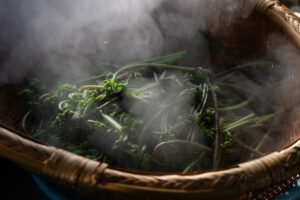
When harvested by hand, these mountain greens acquire a profound sense of attachment. We are carefully preserved, prepared, and offered to guests with reverence, each dish carrying the breath of the mountains and the accumulation of time.
Today, few shukubō still follow this traditional practice of personally gathering, drying, pickling, and preparing mountain vegetables.
In the faith of the Dewa Sanzan, nature itself is divine. Before entering the mountains, upon stepping into their midst, and even when handling the harvested greens, practitioners offer prayers. The act of venturing into the mountains itself can be regarded as an offering of gratitude.
It is with this spirit of prayer and thankfulness that we prepare and serve our meals, allowing each guest to partake of the sacred bounty of the mountains.
Traditional Dewa Sanzan Prayer Ritual
Experience the Living Tradition of Dewa Sanzan
At Sanada Enmeiin, we conduct prayer rituals that provide a space for everyone to participate, while preserving the ancient faith traditions passed down through generations on Dewa Sanzan.
Traditional Attire of the Dewa Sanzan – White Robes (Haku-i) and Shime
During the prayer ceremony, we will provide traditional white robes (haku-i) and shime to purify the body and mind, and to ensure appropriate attire for the sacred space. These garments hold deep significance in the rituals of the Dewa Sanzan, dating back to ancient times. The white robes symbolize purity and innocence, while the shime serves to protect the sacred space, purify the heart, and calm the spirit.
By wearing these garments, which are rooted in the traditions of the Dewa Sanzan, participants can experience a deeper connection to their faith.

In the faith of Dewa Sanzan, prayer is not something only performed by the priests. It is a shared practice, in which participants also take part.
The Sacred Words that Form the Ritual: Sango and Haishi
The ritual involves the use of sacred words known as “Sango” and “Haishi”. These words function like mantras, and by chanting them repeatedly, we focus the mind and unite our hearts with the sacred.
Uniting Hearts and Praying in Harmony
At Sanada Enmeiin, we ensure that first-time participants feel at ease by providing helpful materials.Through this experience, each participant’s voice joins the sacred rhythm of Dewa Sanzan, allowing them to connect with the spirit of the faith that has thrived in these mountains for centuries. Chanting together brings deep peace and a renewed sense of vitality, fostering a meaningful connection between participants and the sacred world.
Offering Protective Charms (Ofuda) with a Wish
The priest will write each participant’s name with ink(sumi) and brush, one by one, infusing each character with heartfelt wishes. These prayer talismans are offered to the altar, and the wishes of all participants are humbly dedicated. The act of writing names is a rare tradition that has been increasingly lost in modern shukubō (Pilgrims’ Lodges).
These protective charms (Ofuda) will be presented to participants after the ritual.
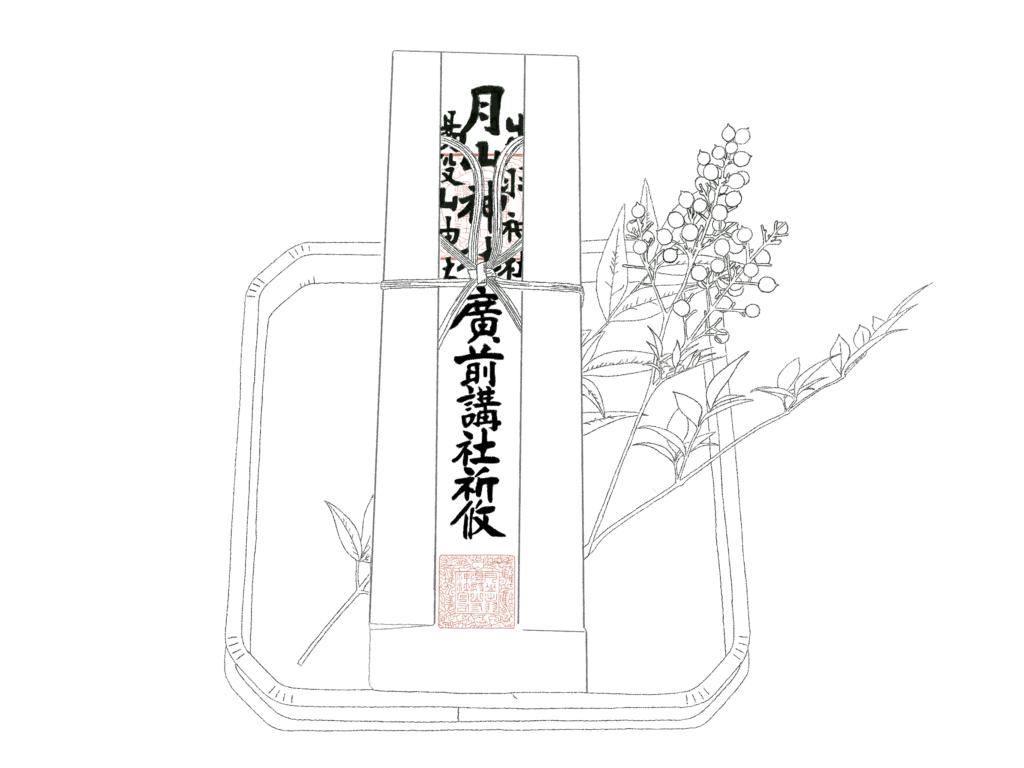
A Rare Opportunity to Experience the Sacred Rhythm of Dewa Sanzan
This ritual, resonating with the sacred rhythm of Dewa Sanzan, offers a valuable opportunity to connect with the faith of the mountains and harmonize both body and mind. We invite you to experience this living tradition of prayer firsthand.
Prayerful Guides
A Shinto Priest and Yamabushi
Head Priest Hideyuki Sanada
Hafuri of Dewa Sanzan Shrine
Yamabushi Name: Eitoku
Hideyuki Sanada (Head Priest of Sanada Enmei-in, Yamabushi Name: Eitoku) has devoted his life to Shugendō and holds the priestly qualifications necessary to carry on the traditions of the Three Mountains of Dewa. In 2004, he served as Matsuhijiri in the special ritual Shōrei-sai at Dewa Sanzan Shrine, designated an Important Intangible Folk Cultural Property of Japan, demonstrating both the depth of his training and his profound faith.
Having begun his work as a Sendachi (guide for pilgrims on ascetic mountain pilgrimages) at the age of sixteen, he has guided over 1,200 pilgrimages to Mount Gassan. Since 1978, he has undertaken annual mountain retreats at Mount Yudono without fail, continuously cultivating his strength and spiritual discipline.
As a Hafuri of Dewa Sanzan Shrine, he plays a key role in transmitting the faith to the local community, strengthening ties with parishioners and local faithful. His prayers and rituals are highly regarded, with requests from the faithful never ceasing.
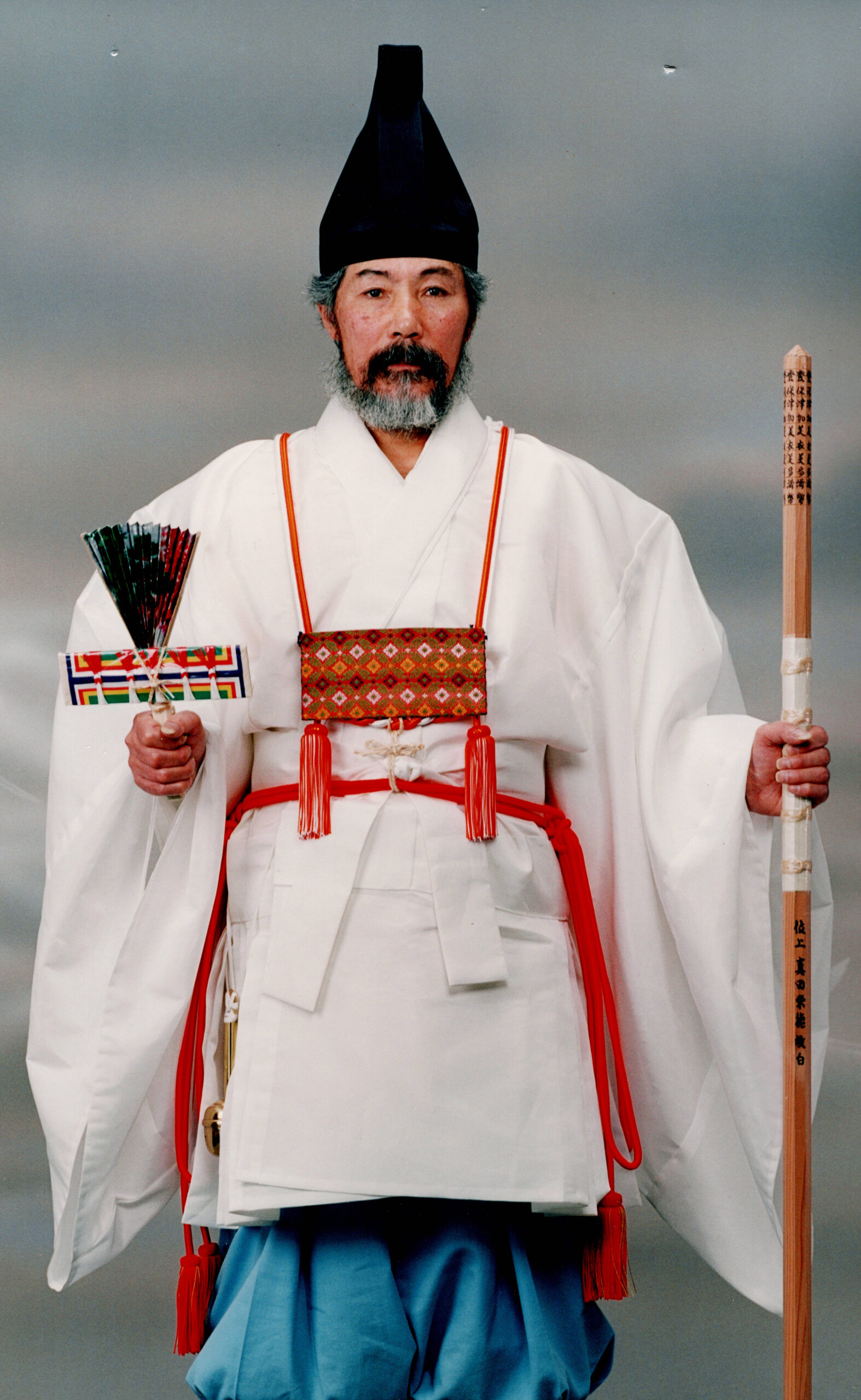
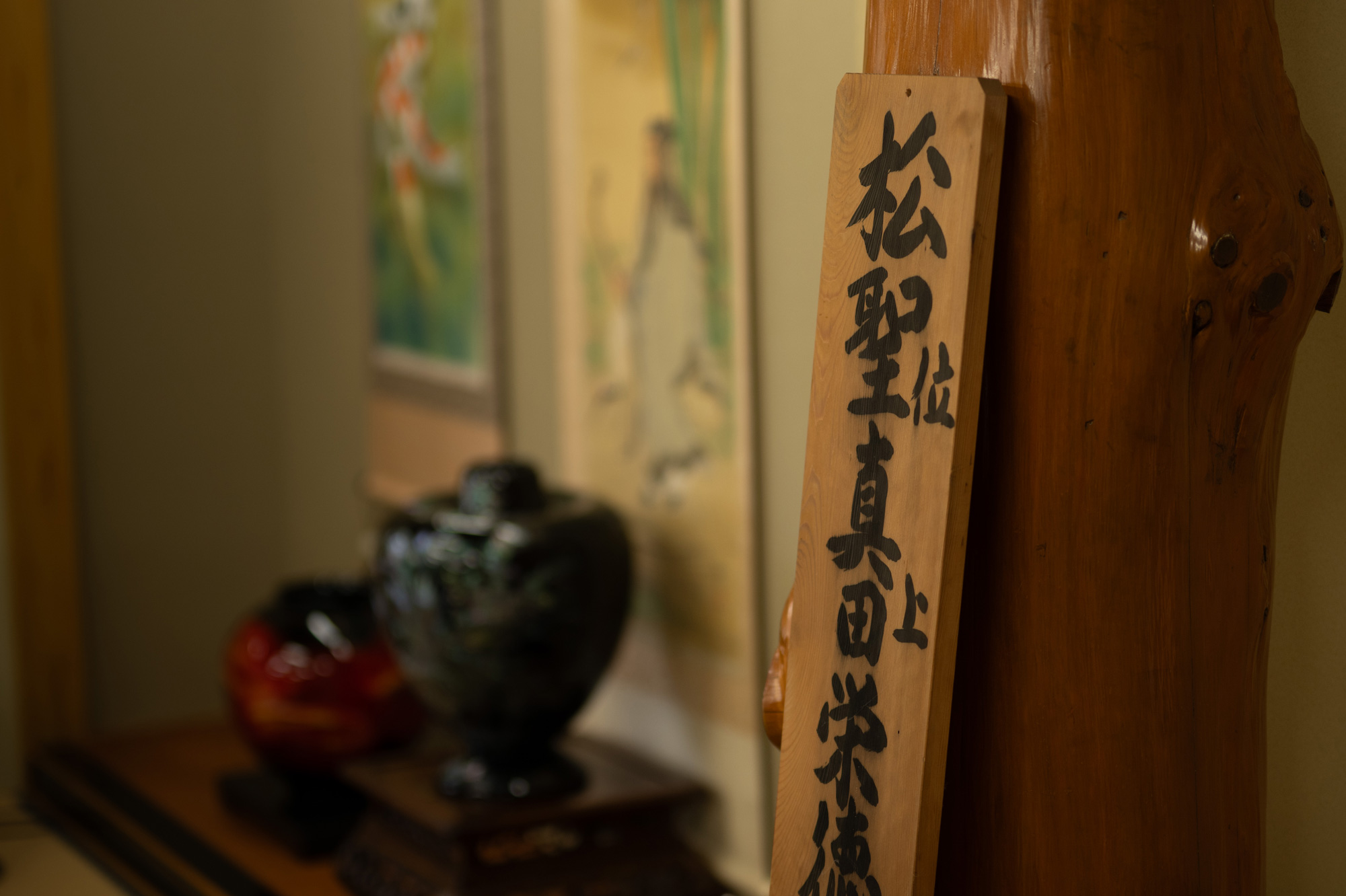
In addition, he ventures into the mountains to gather wild vegetables such as fern shoots, preparing them himself as dried or pickled foods, thereby sharing the bounty of nature and the spirit of prayer with visitors to the temple lodging. Through these daily acts, he embodies and preserves the living tradition of Shugendō at the Three Mountains of Dewa.
Munemasa Sanada
Yamabushi Name:Shūei
Hafuri of Dewa Sanzan Shrine
Munemasa Sanada studied Shinto at Kokugakuin University’s Faculty of Letters and served for ten years at the Three Mountains of Dewa Shrine, dedicating himself to divine service. As one of the few Shinto priests holding the esteemed Mei-kai rank, he now serves at Sanada Enmei-in, a Pilgrims’ Lodge with origins in the Jōkyū era, continuing the traditions of faith and devotion.
During his tenure, he often undertook mountain retreats, living in close communion with the kami, deepening his practice through prayer and ascetic discipline. In 2007, he participated in the sacred ritual Goshinpi Mitogyō, performed once every seventeen years, observing strict ancient rites and undertaking a secluded pilgrimage through the mountains—an experience profoundly etched upon his mind and body.
He also served for over a decade as a Chiji during the Autumn Peak Practice and Female Ascetic Training at Dewa Sanzan, overseeing the coordination of these ascetic practices and helping to transmit the Shugen faith and training system of the Dewa Sanzan into the present day.
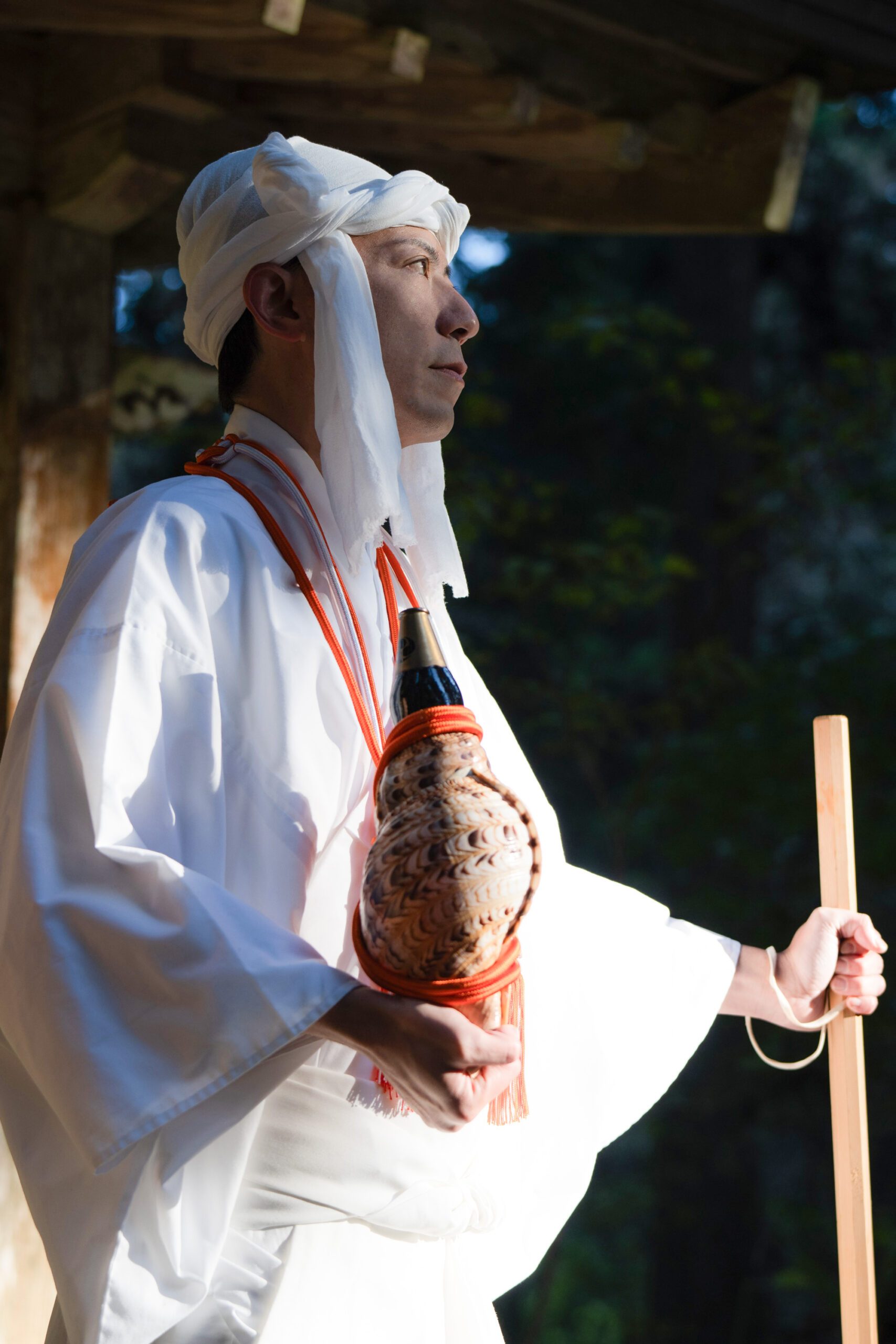
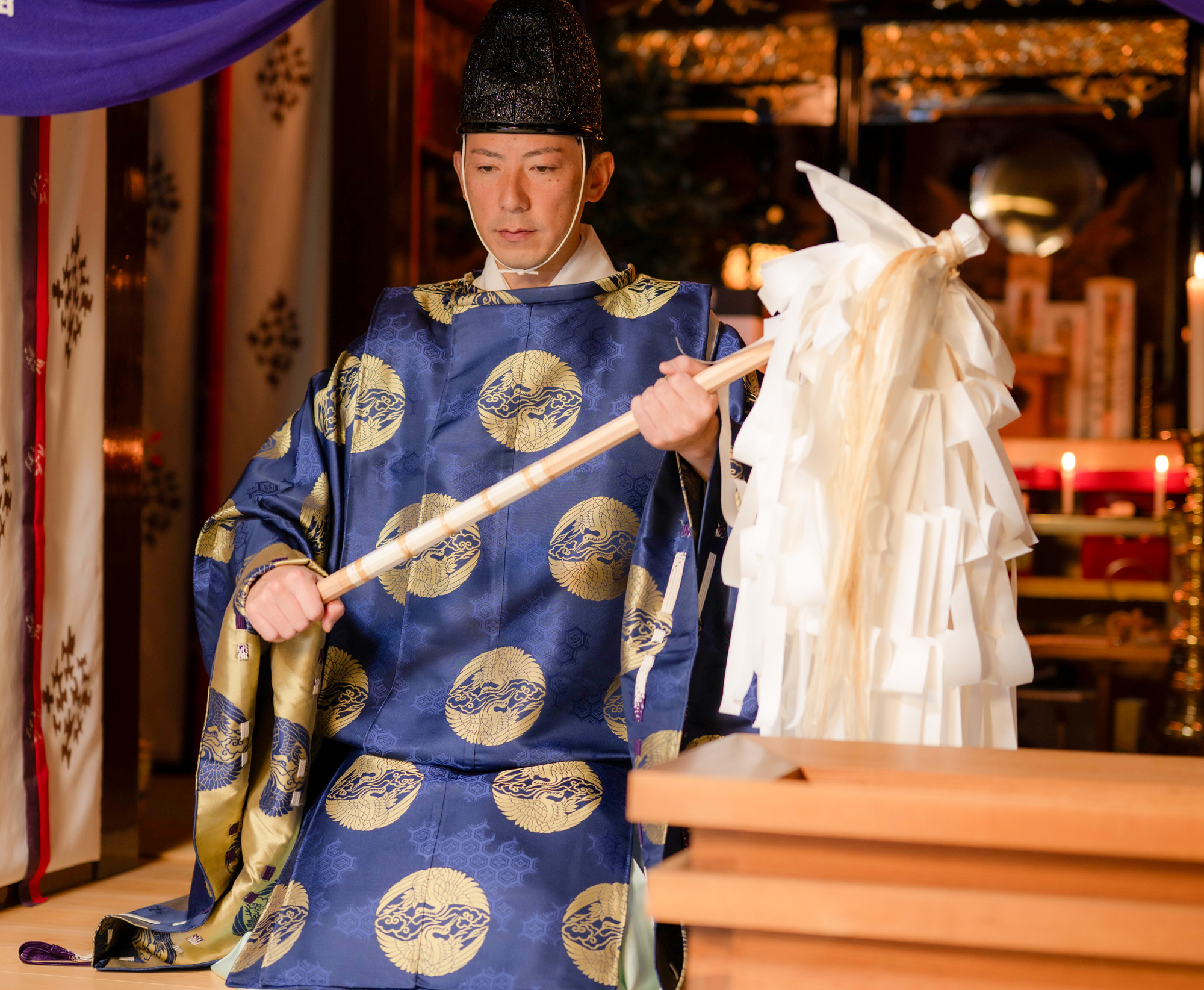
Today, he continues to apply these experiences in supporting the spiritual life of the Three Mountains of Dewa and the operations of Sanada Enmei-in, striving to preserve and pass on their sacred traditions to future generations.
The Sacred Concord
When the mist that envelops the mountain clears, the path of prayer, quietly continued through time, reveals itself. The wishes of people and the blessings of nature endure here, unbroken, even as time passes.
At Sanada Enmei-in, we seek to be a humble sanctuary that gently accompanies the hearts of all who visit, sharing in the memories of the mountain.
Here, take a deep breath, feel the mountain’s spirit, surrender to the time of prayer, and, in harmony with the ever-changing beauty of the seasons, restore balance to both body and soul.
Please experience the moment when the mountain’s power fills the future with light.
Copyright © Sanadaenmeiin All Rights Reserved.